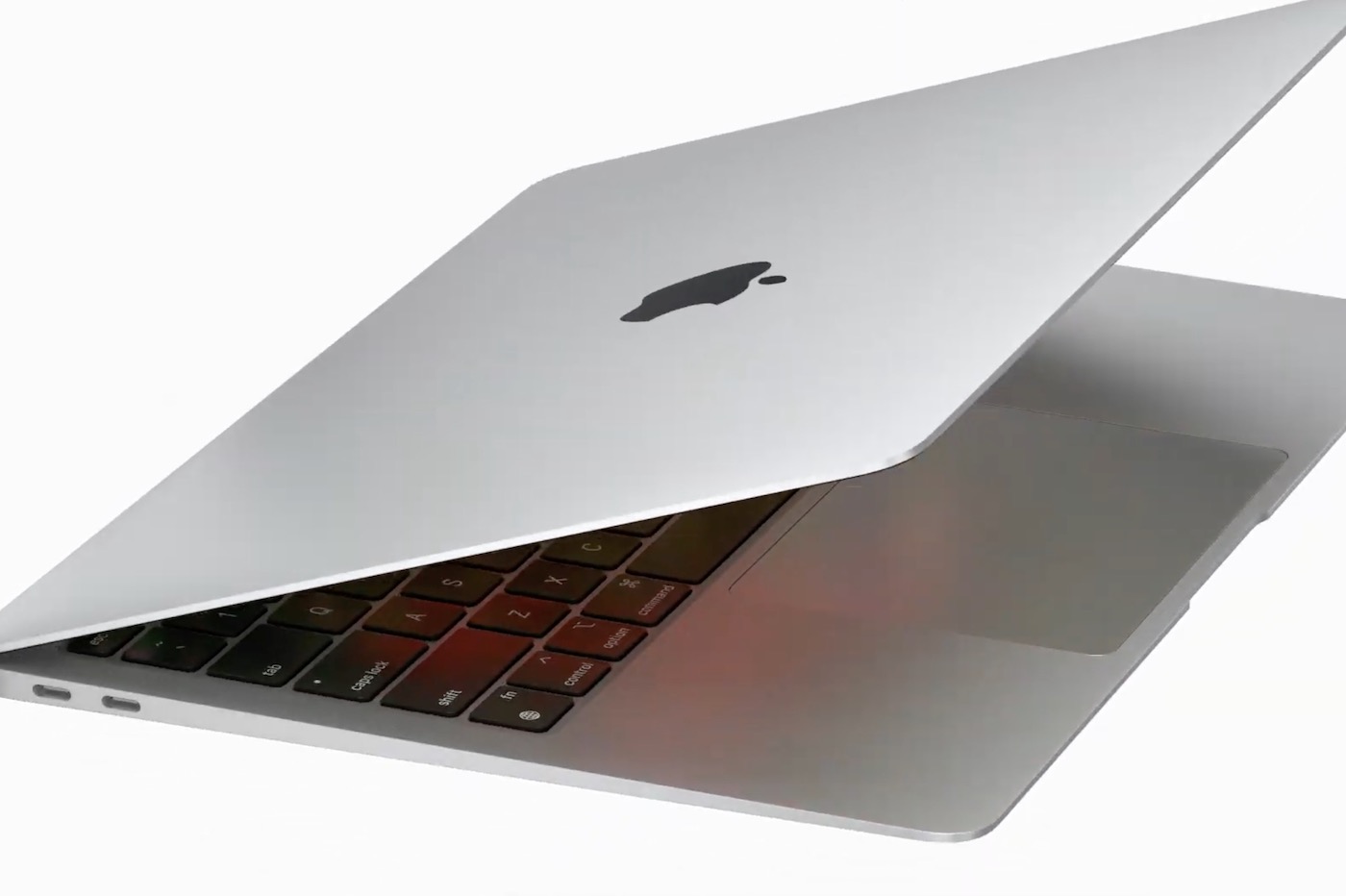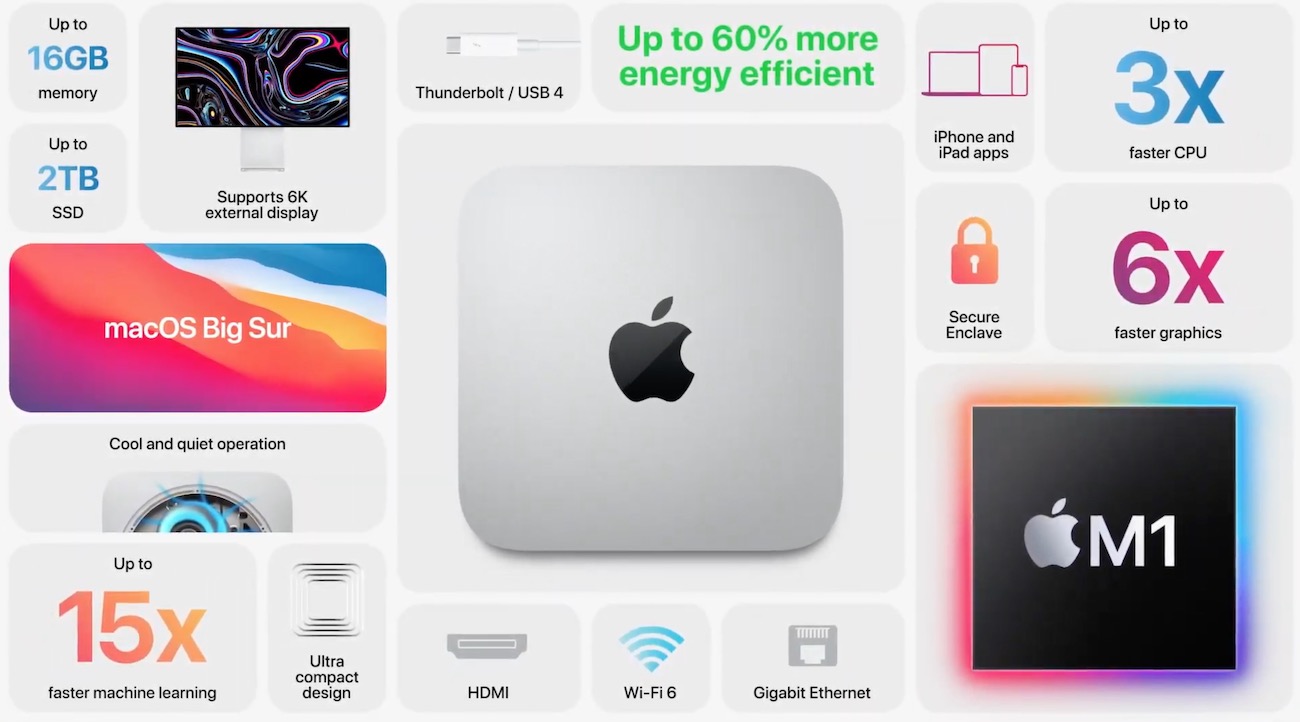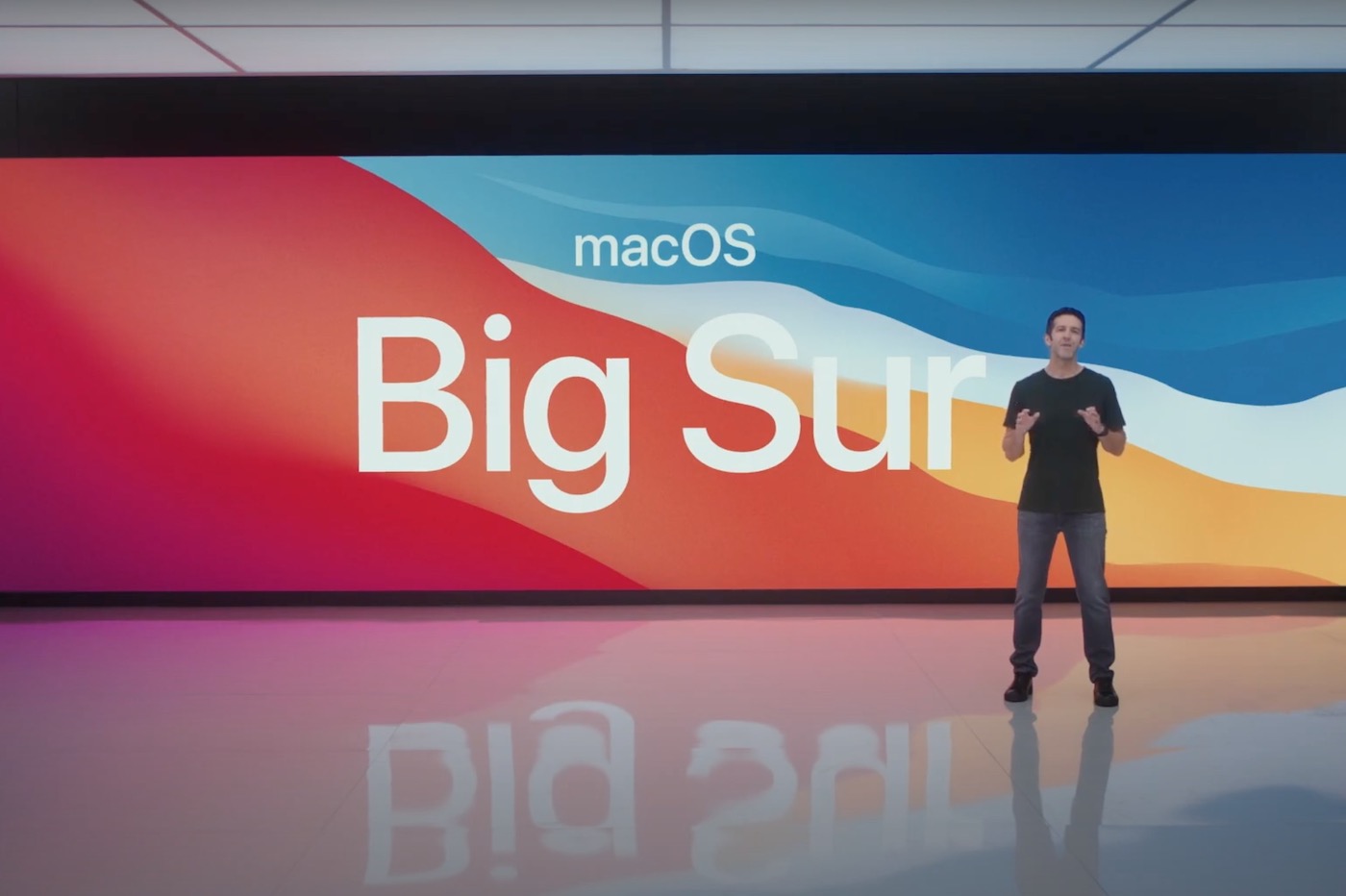We find Tim Cook in Apple Park for the 3rd time in just 2 months. The latter promises a major “One More Thing” after the announcement of numerous new features since the start of the school year. So this is the Mac.
After describing the importance of the computer market for Apple and launching a short presentation video, the CEO got to the heart of the topic of the day: Apple Silicon.
You can watch or rewatch the conference here:
Apple announces that it is developing a family of Apple Silicon chips, starting with the Apple M1 chip, the first Apple Silicon CPU planned for Mac.
M1 is therefore the first SoC for desktop computers. It integrates different platforms that previously supported several components, including the GPU. It is engraved in 5 nm, like the A14 Bionic mobile chip in the iPhone 12 and integrates 16 billion transistors. It runs using 8 cores. Apple promises the best performance ratio per watt consumed on the market on a laptop.
Here are some notable features of the M1 chip:
- 4 high-performance cores: focused on power
- 4 high efficiency cores: focused on energy saving
- 8-core GPU
- 16-core Neural Engine
- Latest generation Secure Enclave
![]()
© Apple
MacBook Air: the first Mac with M1 chip
Here is the new generation of MacBook Air, which arrives with the Apple M1 chip. Below are some of its notable specifications:
- M1 chip with 8-core CPU and 8-core GPU
- Latest generation Neural Engine, announced 9 times faster than the previous generation
- New SSD announced 2 times faster than the previous generation
- No fan
- Battery life: 15 hours of internet surfing, 18 hours of video playback
- Identical design to the previous generation with 13.3-inch diagonal screen and Touch ID

© Apple
Here are the prices of this new MacBook Air 2020:
- Basic version at €1,129: with M1 chip, 8 GB of RAM and 256 GB of SSD storage
- Mid-range version at €1,399: with M1 chip, 8 GB of RAM and 512 GB of SSD storage
In both cases, the RAM can be configured to 16 GB and the storage up to 2 TB.
The MacBook Air 2020, available when?
It is possible to order a new MacBook Air with M1 chip now, for deliveries fromNovember 17.
The M1 chip: also on Mac mini
This is a surprise without being much of a surprise, given that Mac mini kits for developers, with Apple Silicon chip, have been available for several months.
But now, Apple is announcing a new generation of Mac mini for the general public, with an M1 chip. Here are some characteristics:
- Design identical to the previous generation
- M1 chip with CPU announced to be 3x more powerful than the processor of the previous generation Mac mini
- Same for the GPU part, and even better: 6x more power announced
- Two USB-4 compatible Thunderbolt ports, Wi-Fi 6, one HDMI port, two USB-A ports and a headphone jack

© Apple
Here are the prices of this new Mac mini 2020:
- Basic version at €799: with M1 chip, 8 GB of RAM and 256 GB of SSD storage
- Mid-range version at €1,029: with M1 chip, 8 GB of RAM and 512 GB of SSD storage
In both cases, the RAM can be configured to 16 GB and the storage up to 2 TB.
Note that an Intel platform version of the Mac mini is still in the catalog, priced at €1,259 at base price.
The Mac mini M1, when available?
It is possible to order a new Mac mini with M1 chip now, for deliveries fromNovember 17.
The 13″ MacBook Pro also at the Apple Silicon party
The 13″ MacBook Pro also benefits from the M1 chip now in a new generation. Here is the detail on this:
- Design identical to the previous generation
- M1 chip with CPU announced to be 2.8x more powerful than the processor of the previous generation MacBook Pro (entry level)
- Same for the GPU part, and even better: 5x more power announced
- Active cooling system present, like on old MacBook Pros
- Battery life: 17 hours of internet surfing, 20 hours of video playback, 10 hours more than the previous generation
- New generation of integrated microphones
- As on MacBook Air, the M1 chip also improves the image of the FaceTime camera
- Two USB 4 compatible Thunderbolt ports
- Touch Bar still present
![]()
© Apple
Here are the prices of this new MacBook Pro 2020:
- Basic version at €1,449 €: with M1 chip, 8 GB of RAM and 256 GB of SSD storage
- Mid-range version at €1,679: with M1 chip, 8 GB of RAM and 512 GB of SSD storage
In both cases, the RAM can be configured to 16 GB and the storage up to 2 TB.
Note that an Intel platform version of the 13-inch MacBook Pro is still in the catalog, priced at €2,129 at base price.
The MacBook Pro M1, available when?
It is possible to order a new 13″ MacBook Pro with M1 chip now, for deliveries fromNovember 17.
Software: macOS Big Sur finally here
The Big Sur version of macOS is therefore the first OS developed for the Apple Silicon chip. The duo promises high-level optimization, like the Apple Ax chips in iOS.
The applications are advertised as much faster at launch and more efficient overall. But the other great novelty enabled by the addition of Apple Silicon chips to Mac is the universality of apps. Thus, an iOS app can easily be ported for macOS to Apple Silicon Macs. Additionally, many iPhone and iPad apps can be launched on an Apple Silicon Mac without difficulty.
You have to wait until Thursday, November 12 to enjoy macOS Big Sur in final version oncompatible computers. See alsohere the list of new features of this macOS 11presented at WWDC last June.

© Apple
To note
As always, Apple has taken stock of its ecological efforts. The case of the MacBook Air and Mac mini are notably designed using 100% recycled aluminum. In addition, the energy saving enabled by the M1 chip is synonymous with reduced power consumption.
Conclusion
That's it for the Apple announcements. We will be sure to detail each of them in the coming days. Finally, let us note the absence of a real “One More Thing”. No information on products other than Macs has in fact been delivered, unfortunately.
What did you think of this Keynote? We are waiting for your reactions in the comments!
Editor-in-chief for iPhon.fr. Pierre is like Indiana Jones, looking for the lost iOS trick. Also a long-time Mac user, Apple devices hold no secrets for him. Contact: pierre[a]iphon.fr.





